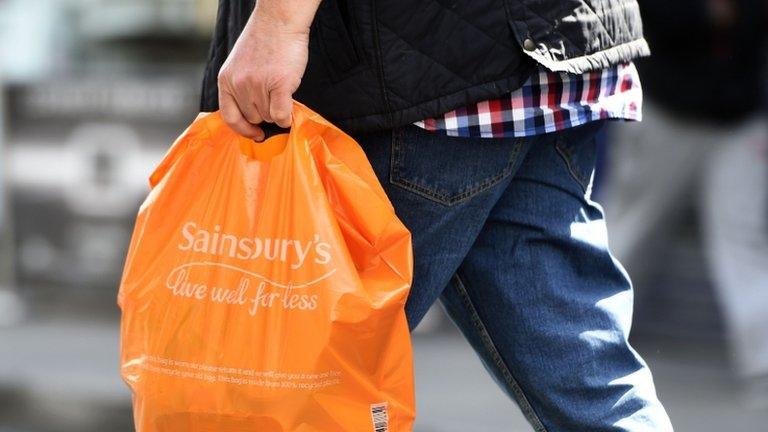Brexit: NI business leaders 'positive but guarded' on deal
- Published
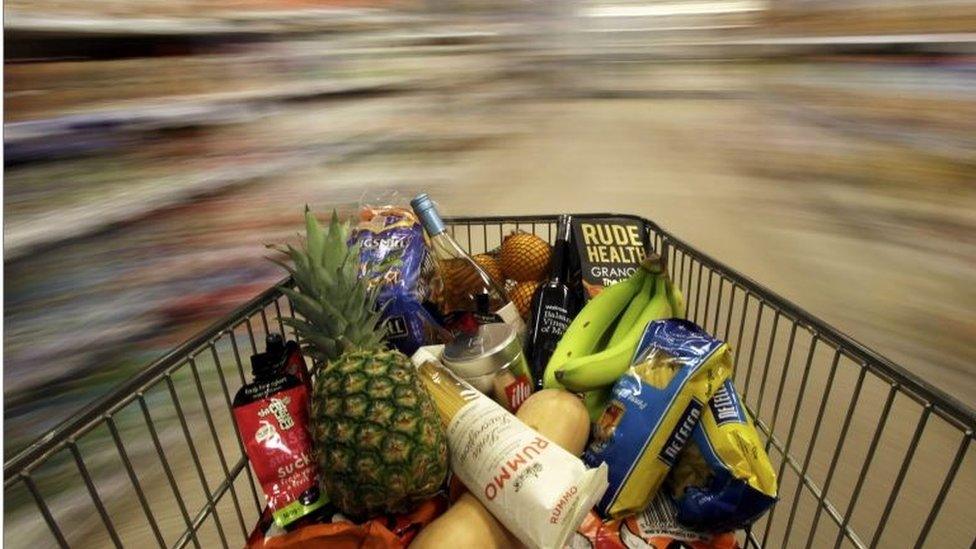
A grace period will ensure Northern Ireland's food supplies will not be disrupted
Northern Ireland's business leaders have given a guarded welcome to news of a "grace period" to ensure food supplies from GB to NI do not face disruption from 1 January.
The three-month window is part of the agreement between the UK and EU.
It determines how the new Irish Sea border will operate after Brexit.
There has been a mixed reaction among political parties, but business organisations have broadly hailed it as a positive step.

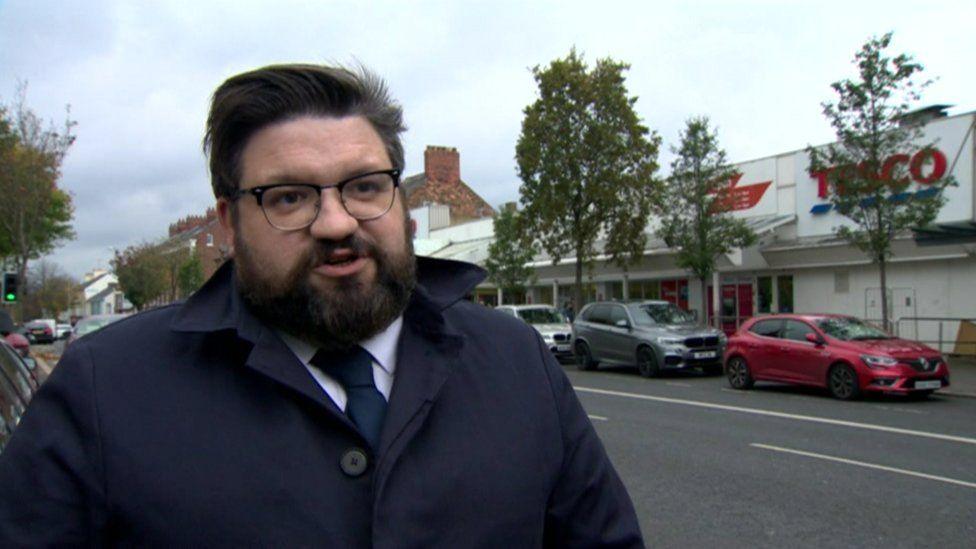
Mr Connolly said this was no end result but the baseline for further deliberations
Aodhán Connolly, director of the NI Retail Consortium said the agreement "removed one source of friction" - but that there were still challenges ahead.
"Since the signing of the Withdrawal Agreement, we have been clear that the Northern Ireland Protocol was better than no deal," Mr Connolly said.
"However, to protect Northern Ireland households from unaffordable price rises and availability issues there needs to be a long-term workable solution that removes the myriad sources of friction."
He pointed out that there were just 22 days before the UK left the EU and retailers remained unsure about exact ways to move food to Northern Ireland.
Mr Connolly said the details of the agreement needed to be the baseline for further deliberations, and not the end result.
People in Northern Ireland should be allowed to trade in a way that keeps costs down and ensured continued choice for families, he added.

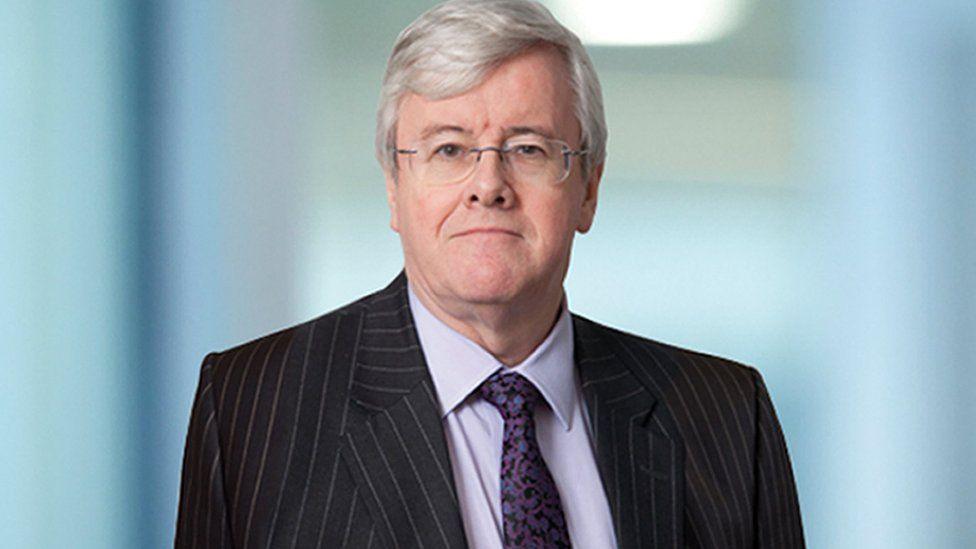
Tesco chairman John Allan said it would be important to see the detail
Tesco chairman John Allan called it an "important step in the right direction".
He described the news as "an important step in the right direction" but had yet to be briefed on further detail.
Mr Allan said that the supermarket chain - which owns 56 stores in Northern Ireland - had been preparing for the worst, a no-trade deal, but he was confident Tesco would have been able to continue to supply food to NI either way
This agreement would make that deal much easier, he said, telling BBC Radio 4's World at One: "Anything is better than nothing."
Asked what would happen if the grace period was not extended beyond three months, he replied: "I'm quite sure we and other supermarket chains will cope."
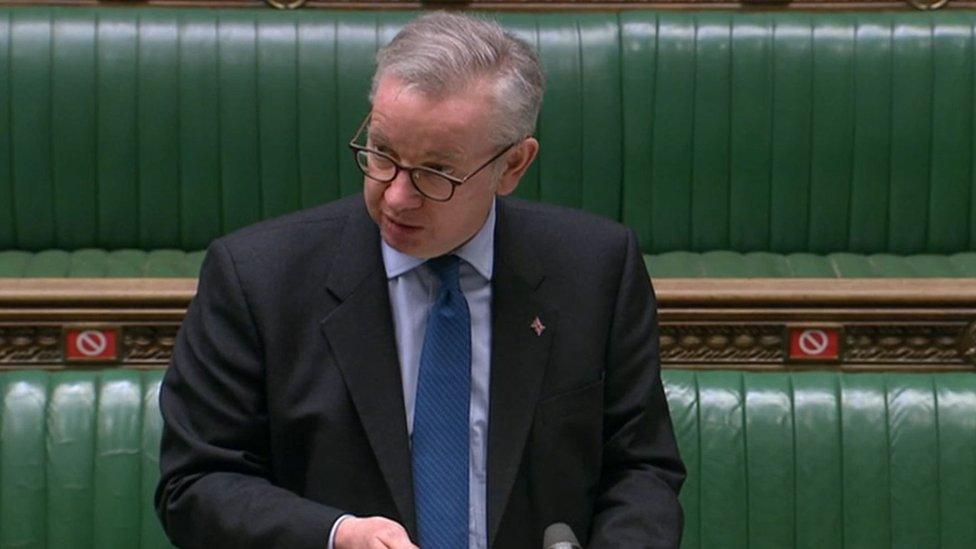
Michael Gove outlined the contents of the agreement in the House of Commons
The so-called grace period will initially be for three months, with six months guaranteed for chilled meat products, Cabinet Office Minister Michael Gove has said.
Unionist parties in Northern Ireland, opposed to the Protocol as they argue the divide it creates between NI and the rest of the UK poses a risk to the union.
Sir Jeffrey Donaldson, the DUP's Westminster leader, said "safeguarding the union is not a three-month project" but rather "an enduring commitment".
He asked Mr Gove to commit, if necessary, to introducing ongoing "safeguard measures" to maintain unfettered access from NI to GB and GB to NI.
'Unionism's biggest mistake since partition'
While Ulster Unionist peer Lord Empey described detail of the plans as a "bad day for Northern Ireland".
He said the Protocol was "the biggest strategic mistake unionism has made since partition in 1921".
"We now have a border in the Irish Sea, the border has been moved from Newry to Larne," he added.
He criticised the DUP leader Arlene Foster and accused her party of reneging on its previously declared "blood red line" opposing any regulatory alignment with the EU.
"She stood on her head as did all of her colleagues so I think that is a shame and disgrace," he added.
The DUP deputy leader Lord Dodds described Lord Empey's comments as "petty nonsense" which "should be abandoned by other unionists".
"We have opposed the Northern Ireland Protocol, we will continue to do that," he said.
Traditional Unionist Voice (TUV) leader Jim Allister said the Irish Sea border would be "destructive" both economically and constitutionally.
"This is a sad day because in truth Northern Ireland is being left behind within much of the EU, while Great Britain makes its full exit with partition now down the Irish Sea," he added.
Sinn Féin's Vice-President Michelle O'Neill, whose party opposed Brexit, gave the agreement a broad welcome but, again, is keen to see the detail.
The grace period would "create breathing space for retailers and traders", she said.
"It is now incumbent on the British government to engage directly with businesses in order to make them aware of exactly what the new arrangements will be and what they will be required to do and, crucially, what support will available for them," she said.
"It is welcome that the EU will have a permanent presence in the north to monitor the implementation and outworking of the Withdrawal Agreement and Irish Protocol.
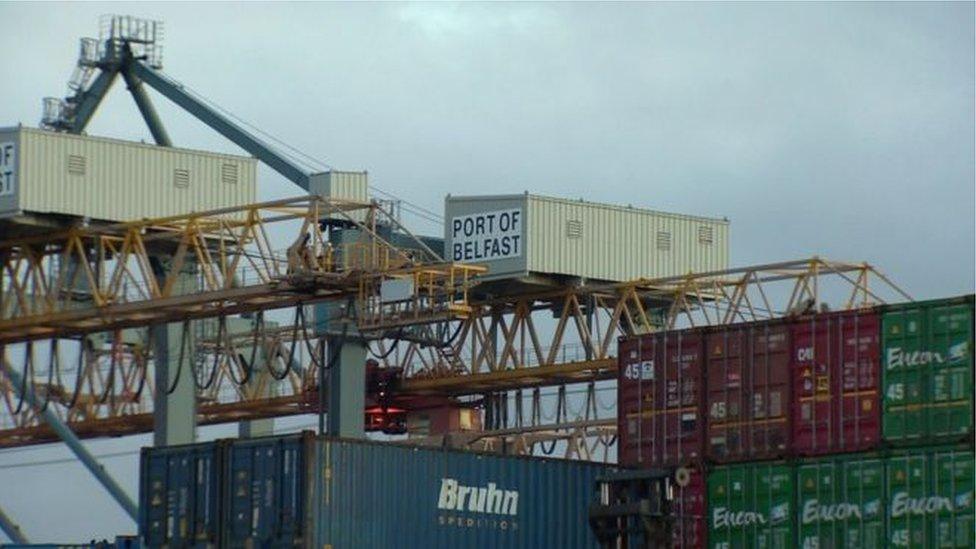
Belfast Port will be one of the locations where officials will continue to enforce EU customs codes after 1 January
SDLP assembly member (MLA) Matthew O'Toole said progress on implementing the Protocol was "welcome", but he stressed that the government had wasted months of time by letting the negotiations run to the last moment.
He said it was "deeply regrettable" that some unionists felt their Britishness would be undermined by the Protocol.
Those who had "championed Brexit" needed to look inwards and reflect that some of them had pushed for "the hardest possible Brexit", he told BBC Radio Ulster's Talkback programme.
Alliance deputy leader and North Down MP Stephen Farry said there was "no escaping" the reality that all forms of Brexit would lead to some form of friction between NI and the rest of the UK.
"This plan amounts to changing a solid line down the Irish Sea to a dotted line," he added.
"I do therefore acknowledge the progress that has been made.... but outcomes are coming very late to give people to prepare."
Related topics
- Published9 December 2020
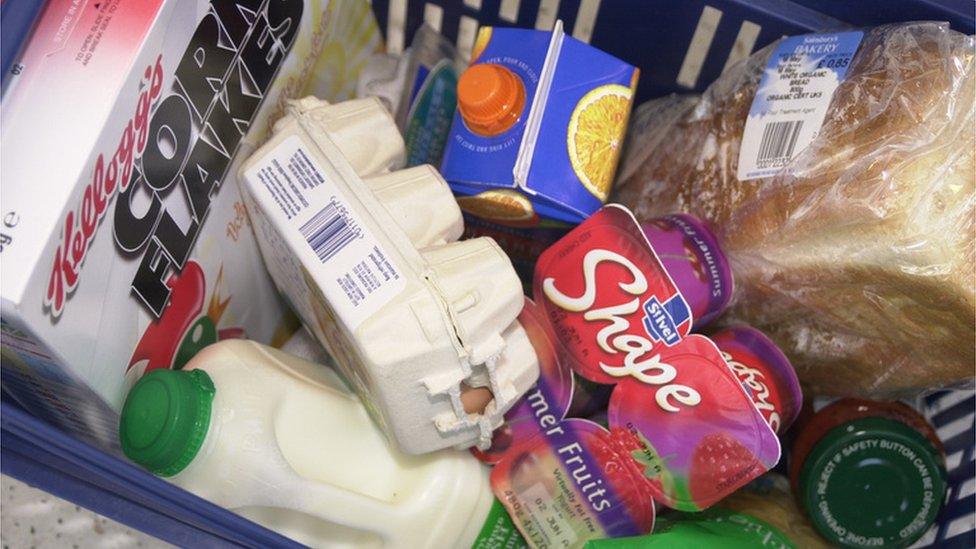
- Published9 December 2020
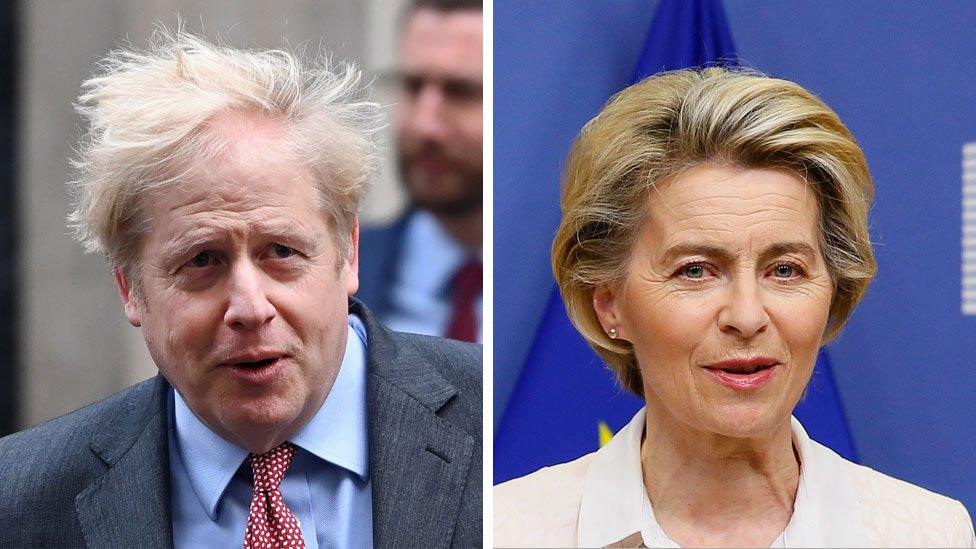
- Published13 December 2020
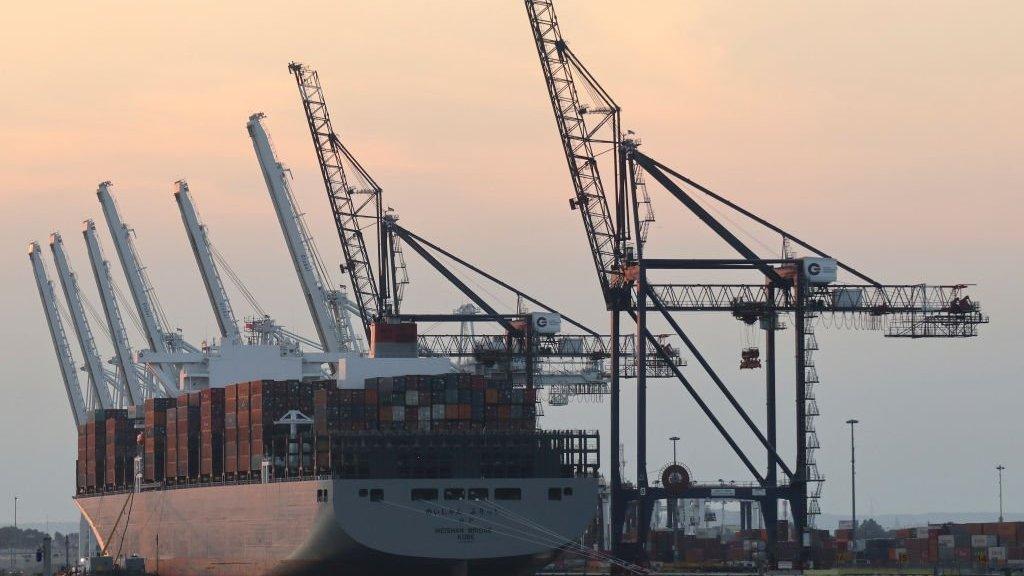
- Published8 December 2020
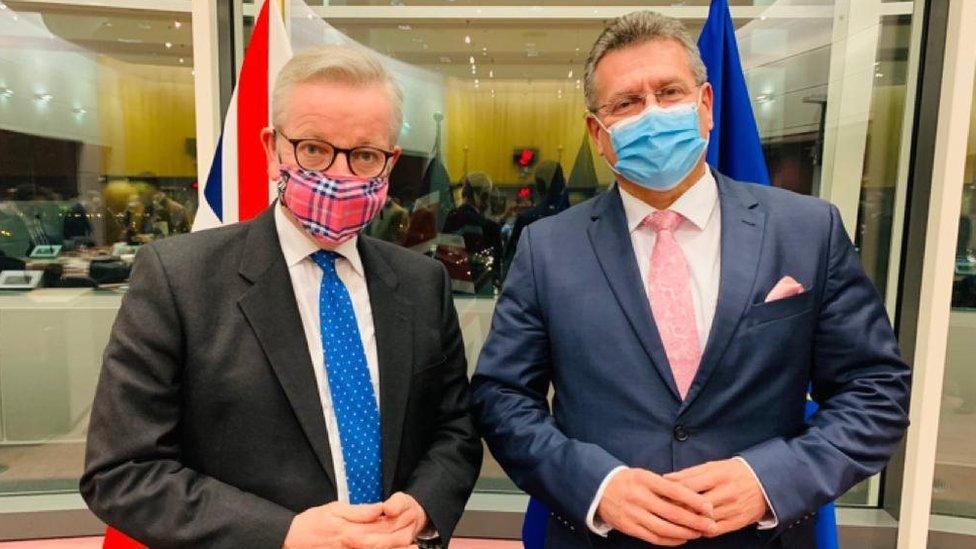
- Published2 February 2024

- Published6 November 2020
